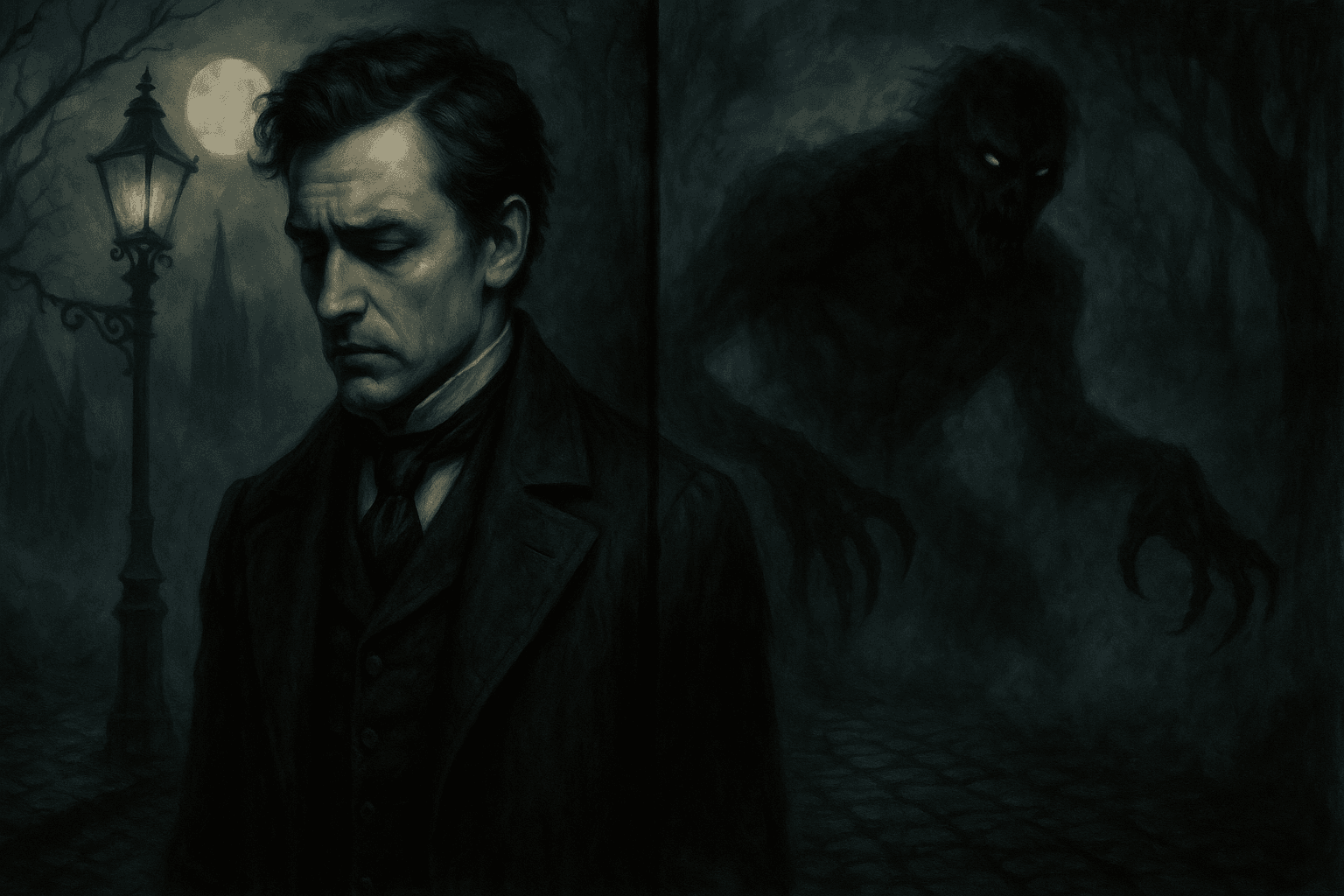Navigating the Shadows: Moral Ambiguity in Dr. Jekyll and Mr. Hyde

The world of classic literature often delves into the complexities of the human experience, and few works do so with the haunting depth found in " The Strange Case of Dr. Jekyll and Mr. Hyde ." At its core, this Gothic tale explores moral ambiguity—the unsettling gray areas where right and wrong blur into one another. As readers, we find ourselves drawn into a narrative that challenges our understanding of morality through the stark contrast between Dr. Jekyll and his alter ego, Mr. Hyde.
From the very beginning, we are introduced to this duality. Mr. Hyde's chilling actions, such as trampling a child without remorse, stand in stark contrast to Mr. Utterson's upright character. As the story unfolds, we can't help but question: how can someone so respectable be linked to someone so vile? This initial encounter sets the stage for a deeper exploration of how societal norms can often mask the darker impulses lurking within us, creating a moral landscape rife with complexity.
As Utterson investigates the unsettling connection between Jekyll and Hyde, we witness the profound moral dilemmas faced by each character. Jekyll's will, which inexplicably favors Hyde, raises alarms not just for Utterson but for readers as well. What drives a man of Jekyll's stature to associate with someone as morally repugnant as Hyde? The tension escalates as we learn about Jekyll's scientific endeavors, which blur ethical boundaries, reflecting his internal struggle to reconcile his respectable facade with the darker desires he wishes to unleash.
The murder of Sir Danvers Carew serves as a pivotal moment that crystallizes this theme. Here, Hyde's violent tendencies are laid bare, yet the connection to Jekyll becomes increasingly troubling. The evidence of Hyde's guilt only deepens the mystery, forcing readers to grapple with the implications of Jekyll's dual identity. Can one be held accountable for the actions of their darker self? The question lingers, compelling us to ponder the motivations behind Hyde's monstrous behavior and the consequences of Jekyll's choices.
As the narrative progresses, we see Jekyll's attempts to sever ties with Hyde, yet the struggle remains palpable. His denial, juxtaposed with moments of visible distress, reveals the complexities of his character. The request for Utterson to aid Hyde after his departure underscores the moral ambiguity of his relationship with his darker self. This duality invites readers to reflect on their own hidden struggles, blurring the lines between societal expectations and personal morality.
In the final chapters, as the story spirals into chaos, the moral ambiguity reaches its zenith. Jekyll's transformation into Hyde becomes more than just a physical change—it signifies a deeper existential crisis. The revelation that Lanyon witnesses this transformation forces him to confront not only Jekyll's morality but the very nature of reality itself. In the end, Jekyll's acknowledgment of his fate echoes within us, illustrating the heavy cost of repression and the dangers inherent in the quest for knowledge.
Stevenson's exploration of moral ambiguity forces us to reconsider our own perceptions of good and evil. Are we not all capable of harboring darkness within us? As we navigate the shadows of our own consciousness, the haunting question remains: how do we reconcile the duality of our natures? In a world where the line between right and wrong is often obscured, Dr. Jekyll’s tragic tale serves as a chilling reminder of the choices we make and the darker impulses we all possess.
In a story brimming with suspense and philosophical depth, Stevenson leaves us pondering the very essence of humanity, inviting us to explore the complexities of our own moral dilemmas.
Books: The Strange Case of Dr. Jekyll and Mr. Hyde
Authors: Robert Louis Stevenson
Publishers: Public Domain